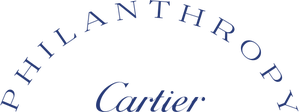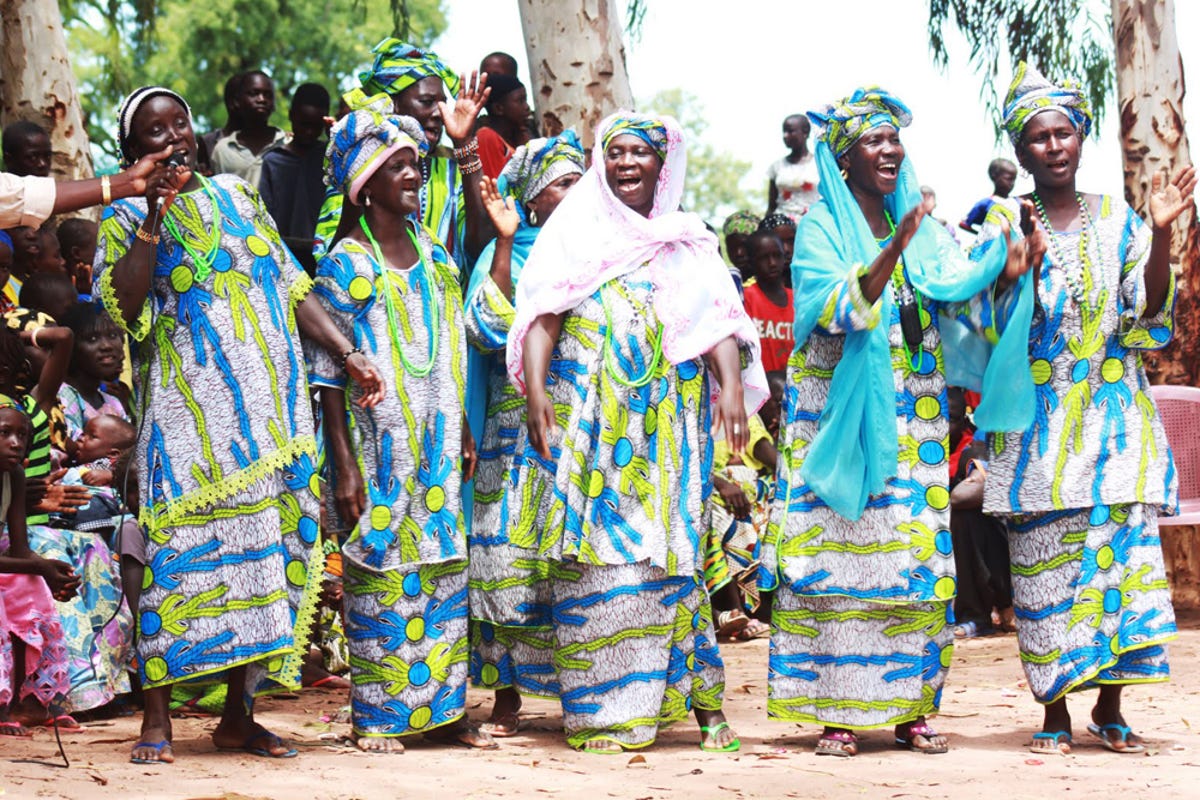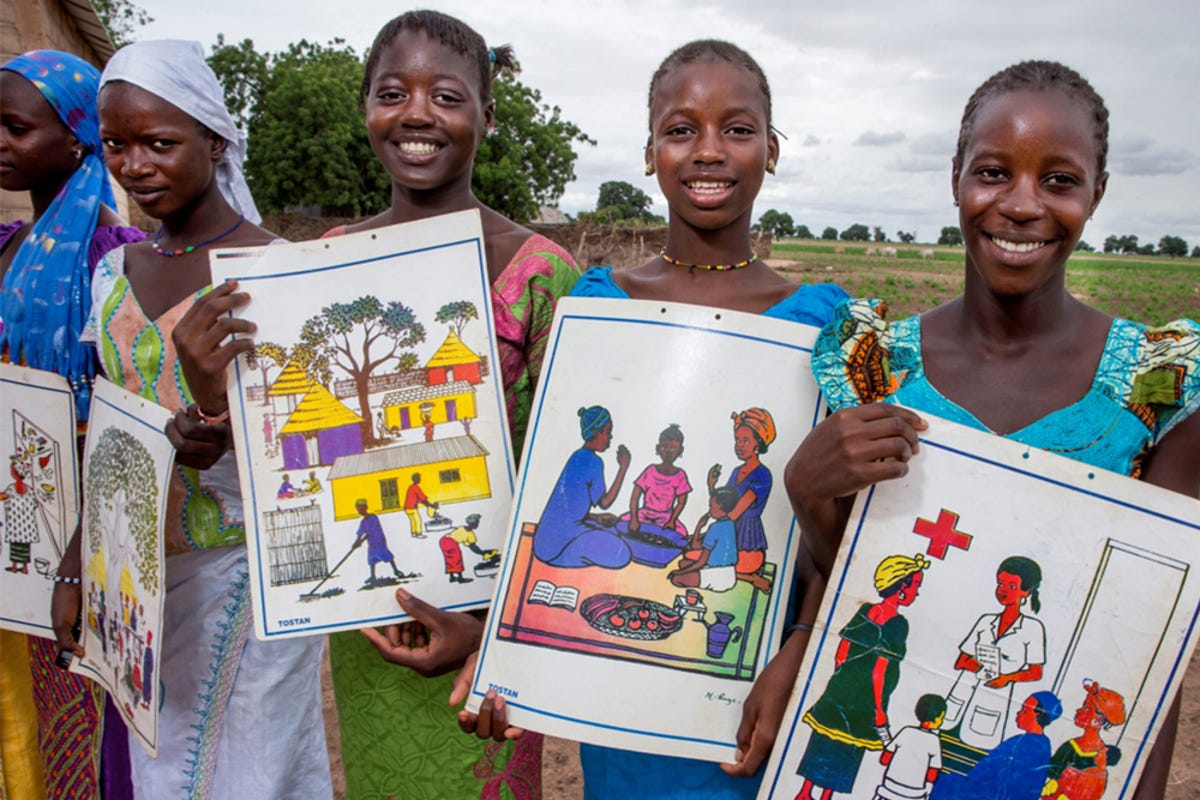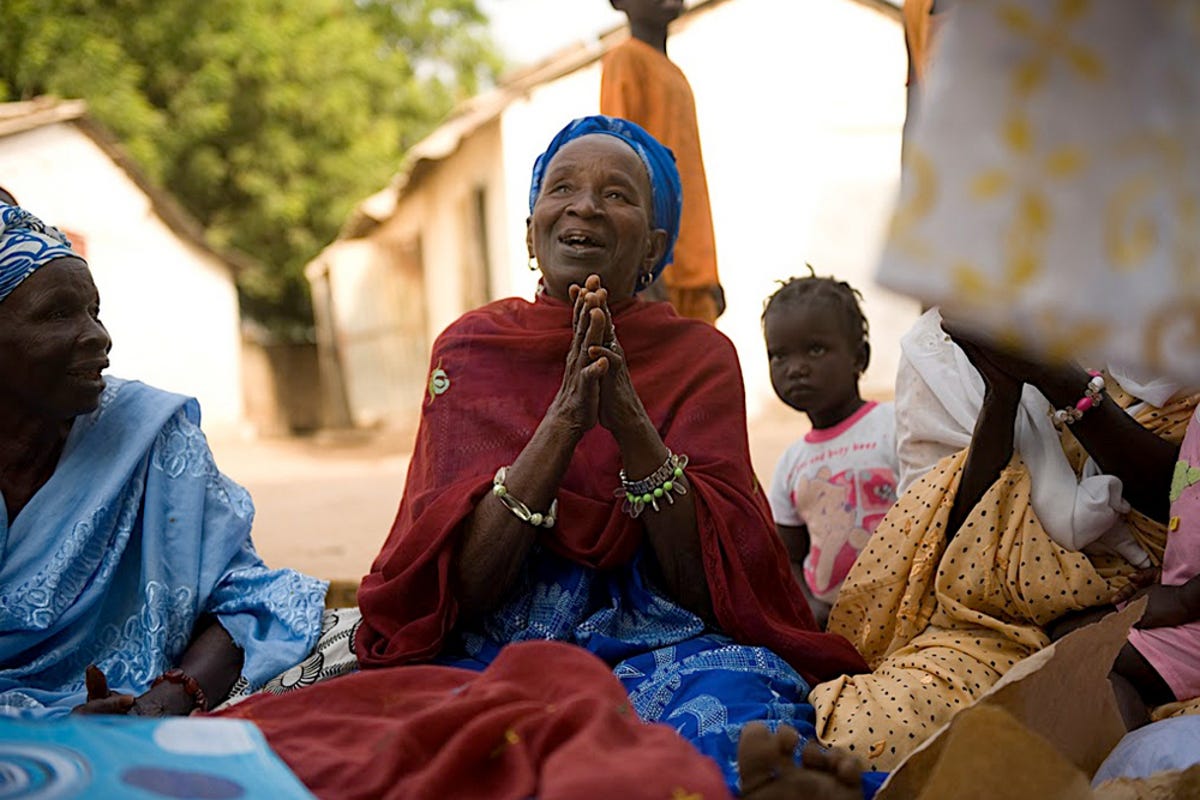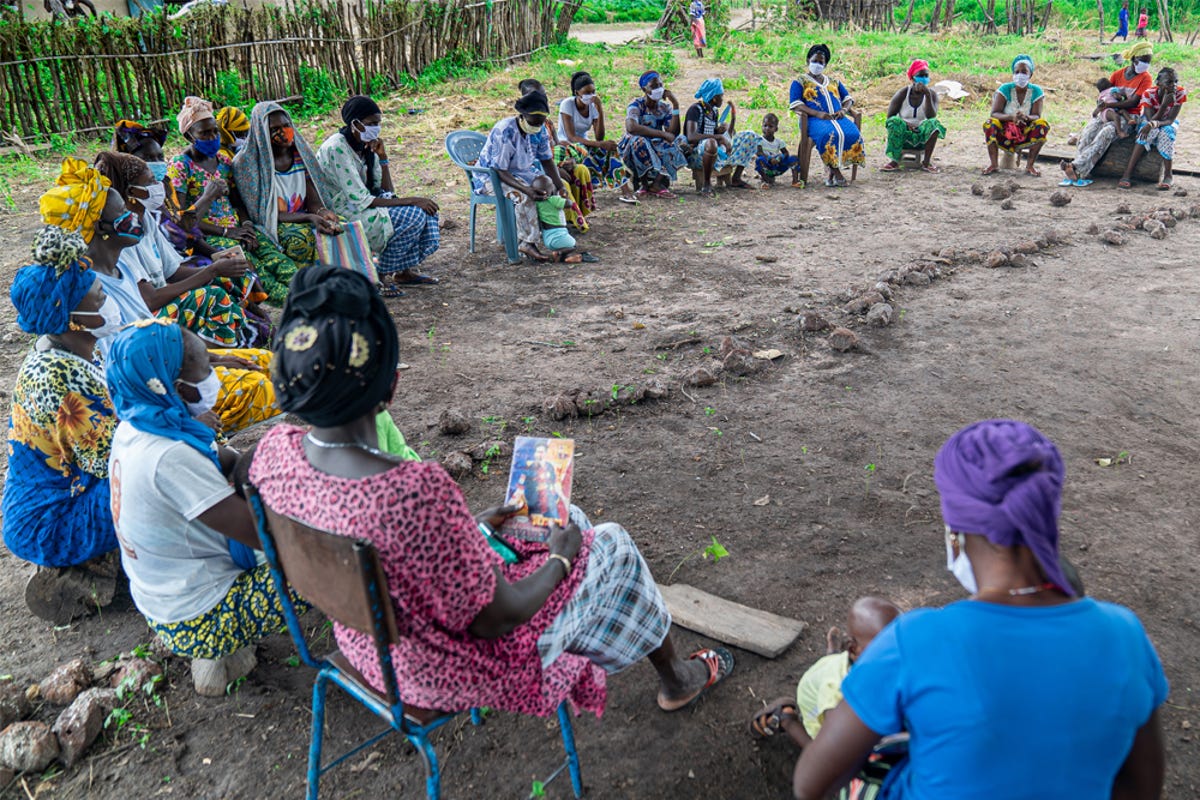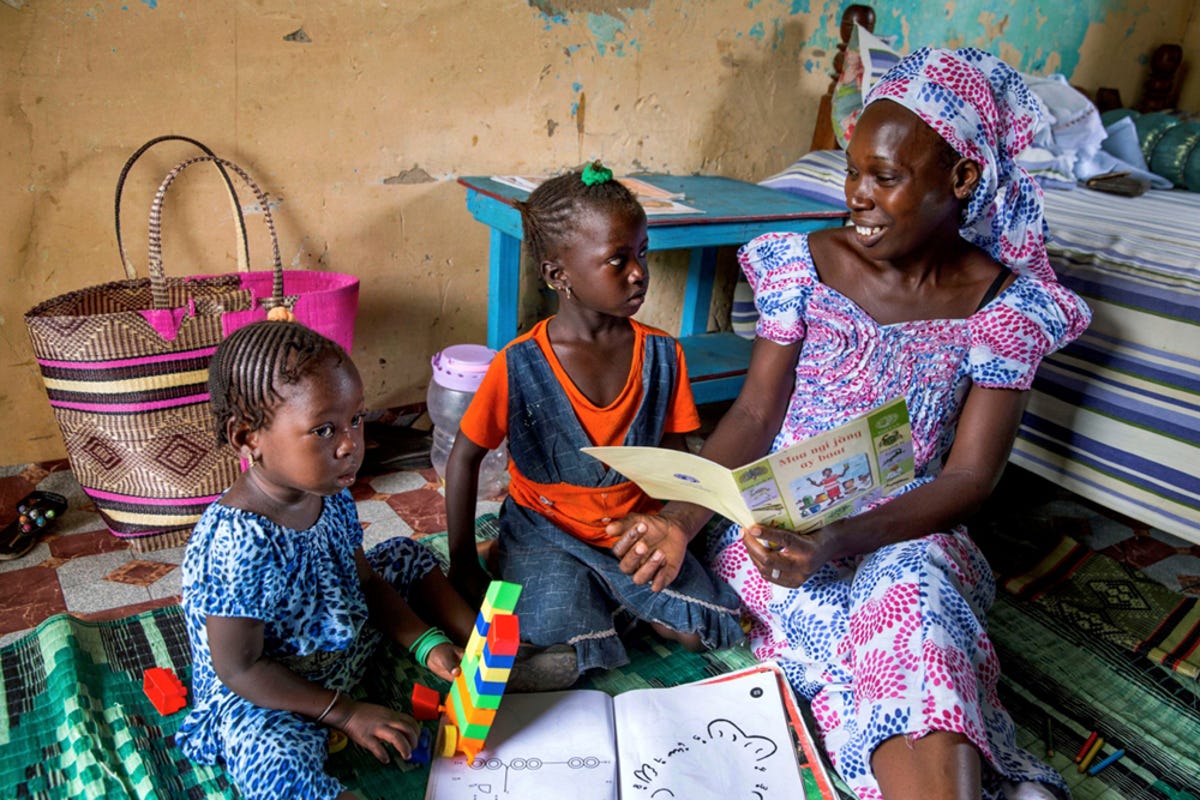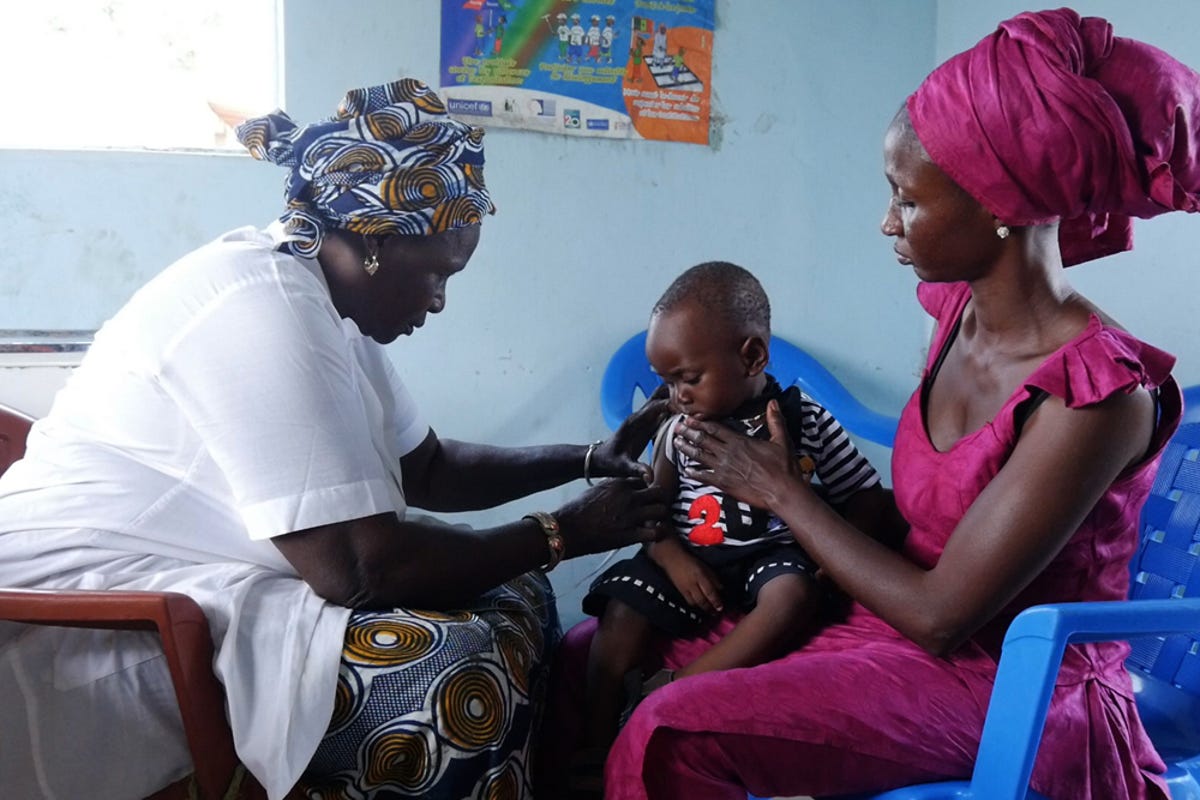Molly Melching’s vision of equality
On the occasion of International Women’s day 2020, we asked Molly Melching, founder of our partner organisation Tostan, to share her vision of gender equality and women’s empowerment. Read her exclusive interview.
© Cartier Philanthropy / Cyril le Tourneur
On the occasion of International Women’s day 2020, we asked Molly Melching, founder of Tostan, to share her vision of equality and empowerment, recounting her experience of building a world of opportunity for all.
Molly’s interview follows the interview of Safeena Husain, founder of Educate Girls and will be followed by the interview with Debbie Aung, co-founder of Proximity Designs.
Gender equity, gender equality. What do you choose?
My choice of words would depend on the context, and in my view, a related and very important question is who chooses.
For those who have been grappling with ideas around “gender equality” and “gender equity” in places like the US and Europe, I think it is, first of all, important to remind ourselves that people have had many years – often decades – of within-culture and national dialogue and debate that stems from educational opportunities, a culture which values individuality, and waves upon waves of movements, courageous leaders, and public advocacy to change deeply-embedded social norms.
Those same dialogues and debates have been almost non-existent in places where Tostan implements our non-formal education program in national languages. These are places where most have never attended formal school; where access to health, livelihoods, and services are minimal; where centuries-old social norms are valued and held in place by a complex system of expectations and sanctions when they are not respected or followed: places where even questioning is prohibited and can lead to what is considered the most horrible of fates – marginalization or ostracization from one’s immediate and extended family.
This is why the choice of vocabulary in contexts such as these is critical. Tostan avoids words that immediately lead to contention and which might close doors to the dialogue needed when introducing new ideas around previously taboo topics of discussion such as explicitly addressing either “gender equity” or “gender equality”.
After listening deeply to hundreds of our community participants, Tostan chose to use the phrase that people told us could open up constructive dialogue among men, women, traditional and religious leaders, as well as youth and children. That phrase is: “Everyone is equal in human rights.” This terminology works because participants in our classes first agree, through facilitated discussion, on what it means to be human - which is gender-neutral. With further study, they are surprised to realize that these human rights principles are actually aligned with their deeper values and religious beliefs. Reaching out to share these new ideas with their community and social network promotes unity and reinforces the idea that human rights principles need to be owned and respected by all humans: women, men and children.
This is an implicit way of supporting people to consider and choose, in their own way and with their own vocabulary, behaviour change leading to increased gender equality and gender equity.
What is the main leap forward women have made in recent years?
Through empowering education in their mother tongue, I have seen village girls and women gain a voice - and with that voice they have been able to speak out for the first time and convince other women and men to break free from many gender stereotypes and gender-adverse social norms.
New confidence in expressing their ideas, not only as they did previously to their husbands privately through what the Wolof call “pillow advice”, but also in public spaces, has led thousands of rural women to run for office at the community, district and even national level. We have also witnessed women working and traveling for the first time outside their home and village. It is exciting that women now have multiple role models across various sectors that serve to inspire and open up new possibilities for other women and for the next generation of girls.
Almost all sectors in the development field now recognize the value of an empowering, human rights-based education in national languages as a catalyst for achieving an unprecedented “leap forward”, particularly for the many millions of girls and women who have never attended formal school.
What is the highest wall they still need to climb?
I think there is a wall – but it isn’t one we should ask women to climb, it is one we can all work to knock down together. It is the wall of misunderstanding, a wall of disconnection and lack of trust. It is a wall that, ironically, often exists between those seeking to invest in a better world and the communities who most need their support.
Breaking down that wall will mean investing directly rather than indirectly in the value and potential of women and girls. We’ve spent decades “doing development” over this wall. I think progress has been made very inefficiently – without fully engaging communities and especially women and girls and other marginalized groups – not just as those who can benefit most, but as the owners and drivers of the whole development process.
As more and more people become engaged in achieving the Sustainable Development Goals, I hope we will see an end to vertical investments that are contingent on single issues and outside solutions. I rather envision collaborations with partners horizontally – investing with trust and love in women who are provided with an empowering, holistic education in their own language. I believe they will not only be able to address common challenges successfully, but also rise to face those of the future.
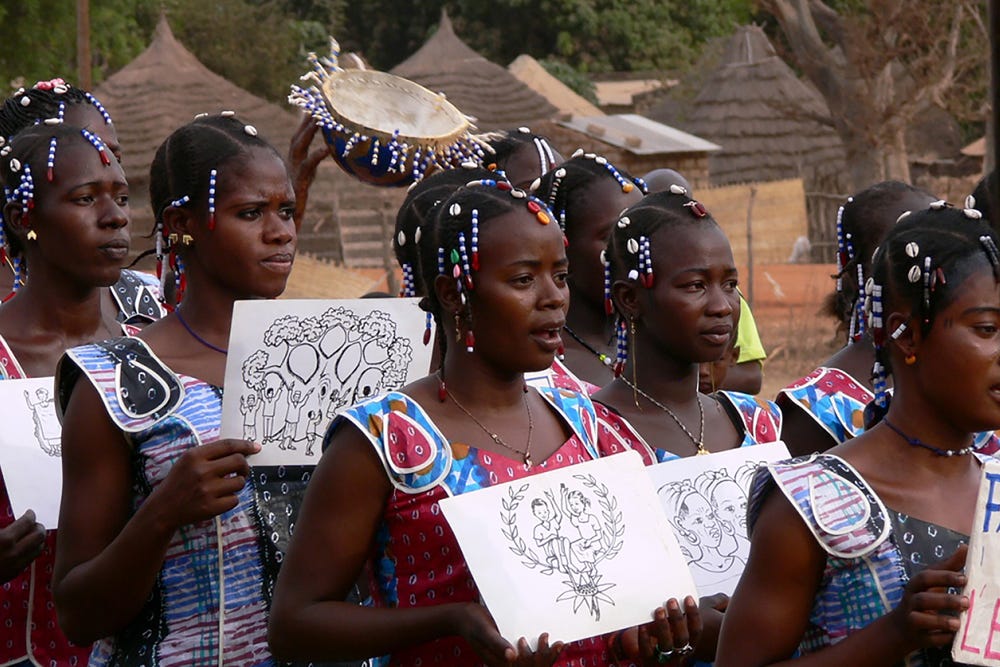
© Tostan
“Empowering women” has become a buzzword. What does it truly mean for you?
After implementing a holistic, non-formal education program in hundreds of communities in Senegal over a six-year period, Tostan introduced a module on human rights education into our program in 1996. That was a turning point for us and it’s when I personally truly understood the meaning of “empowering women”. Since then, I have witnessed thousands of rural women in eight African countries stand up to abandon harmful practices, peacefully march to end domestic violence, run for elected office at the community, district, and national level on a human rights platform, and publicly speak out with confidence to advocate for their rights for the first time. These actions inspired and actually empowered me, giving me renewed energy and courage to persevere.
Role models can help break down conscious and unconscious bias for girls and women. You’re definitely one, but do you have one?
Personally, both my mother and my older sister, Diane Gillespie, have been role models for me. They both threw themselves passionately into teaching at a time when many women in the USA didn't seek higher degrees or work while they were raising children. My sister retired early as a professor to support Tostan and continues to volunteer since then as a devoted mentor to many of our staff.
As a social change role model, I look up to the wonderful Kenyan woman, Wangari Maathai, whose bold vision was a holistic one, linking gender justice with environmental justice.
What is the most important lesson you have learnt in your fight for gender equality?
At Tostan, we learned the hard way that men must be included in different aspects of empowering education classes. When we first started including a three-month human rights module in our education program, our focus was only on women’s rights. This was so important to the women participating in the program and led to actions we had never imagined possible. During the previous six years of program implementation where we concentrated only on subjects of hygiene, health, literacy and project management. Nonetheless, with the introduction of “women’s rights”, the men became suspicious and even tried to close centres. We then realized that focusing on women and girls alone neglects the social context in which women must currently operate and that it frequently creates resistance in men. In 2000, we acknowledged our mistake and reworked our modules to include all members of society who need to know and come to consensus around the human rights of all people: women, men and children.
We also learned in that process that women are able to bring their communities along towards greater transformation much faster when they avoid “blaming and shaming” or “fighting” against current practices as it can make people defensive and generate unnecessary conflict. Rather, using a positive, forward-looking framework of partnering to "promote community well-being" keeps everyone focused on better ways of interacting to achieve new and commonly-defined community goals, all the while maintaining important African values of peace, respect, family, unity, cooperation, and interdependence.
What is the book everyone should read to get on board and support women in their endeavours?
I think that Melinda Gates The Moment of Lift speaks to men and women in a way that shows how gender matters for well-being and for a brighter future where talents and abilities can flourish. She owns the word feminist in a way that illustrates the importance of taking a stand for growth and development of all peoples. She lays out convincingly the case that empowering women is central to development. And although she admits it was difficult, she decided to share her own feelings and vulnerability which I think is so important to women everywhere.
